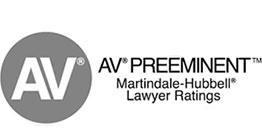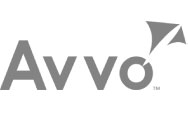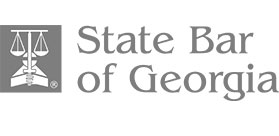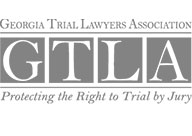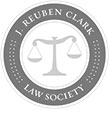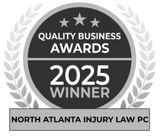Was your Uber or Lyft ride in Milton cut short by a collision? If so, you might be wondering who is responsible for your medical bills, your lost paychecks, and the pain you’re experiencing.
The answer depends entirely on the driver’s status in the app at the precise moment of the crash. Georgia law establishes specific insurance requirements for rideshare companies, but determining which policy applies is a burden you shouldn’t carry while trying to heal. This is where the insurance companies can create delays, leaving you caught in the middle as the bills start to pile up.
Our Milton ridesharing accident lawyer clarifies these situations for people injured in rideshare accidents. We determine who is accountable and pursue the financial recovery you need. If you’re facing uncertainty after a crash, our team at North Atlanta Injury Law is ready to give you straight answers. Call us for a no-cost consultation at (770) 988-4000.
Milton Ridesharing Accident Guide
- Key Takeaways for Milton Rideshare Accident Claims
- Why Choose North Atlanta Injury Law for Your Rideshare Case?
- What Makes Rideshare Accident Claims in Georgia So Different?
- What Kinds of Injuries Are Common in Rideshare Wrecks?
- How Much Is My Milton Rideshare Accident Case Worth?
- Where Do Rideshare Accidents Happen in the Milton Area?
- What Is the Legal Process for a Rideshare Claim?
- What Should You Do at Home to Protect Your Claim?
- Frequently Asked Questions for a Milton Rideshare Accident Lawyer
- Take Control After a Rideshare Accident
Key Takeaways for Milton Rideshare Accident Claims
- Insurance coverage depends on the driver’s app status. Uber and Lyft provide different levels of insurance depending on whether the driver was offline, waiting for a ride, or actively transporting a passenger. We determine this using digital records.
- A quick settlement often ignores long-term costs. Initial offers rarely account for ongoing medical care, missed work, or emotional harm. Once accepted, you lose the right to ask for more.
- Your actions after the crash impact your claim. Follow your treatment plan, track your expenses, and avoid social media. These steps protect your case and strengthen your position during negotiations.
Why Choose North Atlanta Injury Law for Your Rideshare Case?
When you’re recovering from an injury, the last thing you need is to feel like just another case file. We frequently hear from clients who felt ignored by other firms, telling us they learned more in a single phone call with our team than they did in months with their previous lawyer.
At North Atlanta Injury Law, you get direct, personal attention. Our founding attorney, Travis Little, has litigated against major corporations, including Lyft. He understands their tactics and built our practice on a foundation of clear, consistent communication. You will always know what is happening with your case and why.
Our client-focused approach gets results.
- Direct Attorney Access: You work directly with our legal team, not just support staff. We take the time to answer your questions in plain English.
- No Fee Unless We Win: We work on a contingency fee basis. Simply put, you pay us nothing unless we secure compensation for you.
- Located in Your Community: Our office is right here in Milton at 12610 Crabapple Road, Suite 201, ready to serve our neighbors.
- Proven Client Satisfaction: Our clients consistently mention our responsiveness, professionalism, and the individual attention they receive.
Let us manage the legal details so you can focus on getting better. Contact us for a free case review.
What Makes Rideshare Accident Claims in Georgia So Different?
Georgia law provides a clear, three-tiered system for rideshare insurance. The policy that applies depends entirely on what the driver was doing in the app when the wreck happened. Our first step is to investigate and secure digital evidence to determine which of these scenarios fits your case:
- The Driver Was Offline: If the driver was not logged into the Uber or Lyft app, their personal car insurance is the primary source of coverage.
- The Driver Was Waiting for a Request: If the driver was logged in and available but had not yet accepted a ride, a limited liability policy from the rideshare company applies. This typically covers at least $50,000 per person for bodily injury, $100,000 total per accident, and $25,000 for property damage.
- The Driver Was En Route to a Pickup or Transporting a Passenger: From the moment a driver accepts a ride until the passenger leaves the vehicle, a $1 million policy from the rideshare company for liability is in effect. This period also includes uninsured/underinsured motorist coverage.
We investigate the driver’s app status, collect the necessary digital proof, and make sure the correct insurance policy is held accountable for your injuries.
What Kinds of Injuries Are Common in Rideshare Wrecks?
The sudden force of a car accident can cause a wide range of injuries, some of which may not be immediately apparent. Adrenaline can mask pain, and what seems like minor soreness at first might develop into a chronic condition. It’s a key reason why you should never accept a quick settlement offer from an insurance company.
Some of the most frequent injuries we see in rideshare accident claims include:
- Whiplash and Neck Injuries: The rapid back-and-forth motion in a collision can strain the soft tissues in the neck, leading to persistent pain, stiffness, and headaches.
- Head and Brain Injuries: Passengers can strike their heads on windows or other hard surfaces, causing anything from a mild concussion to a severe traumatic brain injury (TBI) with long-term cognitive effects.
- Back and Spinal Cord Injuries: The force of an impact can damage vertebrae or discs in the spine. In severe cases, this can lead to herniated discs, chronic pain, or even paralysis, rewriting every aspect of life.
- Broken Bones: Fractures of the arms, legs, ribs, and collarbone are common as the body absorbs the force of the crash.
- Psychological Trauma: Not all injuries are physical. The shock of an accident can lead to anxiety, depression, or post-traumatic stress disorder (PTSD).
Seeking a medical evaluation after any accident is important, even if you feel fine.
How Much Is My Milton Rideshare Accident Case Worth?
When you’re unable to work and facing mounting medical bills, financial stability becomes a primary concern. Calculating the true cost of an accident requires looking far beyond the initial hospital visit.
Insurance companies may extend a quick offer that seems generous, but it frequently fails to account for future medical treatments, lost earning potential, or the non-economic toll the injury takes on your life. Once you accept an offer, you forfeit the right to seek further compensation for these long-term costs.
The purpose of a personal injury claim is to make you whole again by providing financial recovery for every loss the accident inflicted. We pursue the maximum compensation available under the law by meticulously documenting your damages, which are separated into two main categories:
- Economic Damages: These are the tangible, verifiable financial losses you have sustained.
- All medical expenses (past, present, and future)
- Lost wages and income
- Diminished future earning capacity
- Rehabilitation and physical therapy costs
- Property damage to your vehicle or belongings
- Non-Economic Damages: These compensate you for the intangible, personal losses that don’t have a specific price tag.
- Pain and suffering
- Emotional distress and mental anguish
- Loss of enjoyment of life
- Permanent scarring or disfigurement
How Can Comparative Fault Impact Your Claim?
Georgia uses a “modified comparative negligence” rule. This means you can still recover damages as long as you are found to be less than 50% at fault for the accident. However, your total compensation award will be reduced by your percentage of fault. Insurance companies conduct thorough investigations to determine if you contributed to the accident, and our role is to protect you from any unfair allocation of blame.
Where Do Rideshare Accidents Happen in the Milton Area?
Rideshare accidents can occur anywhere, but they are more common in areas with heavy traffic, complicated intersections, and a blend of commercial and residential activity.
Based on local traffic patterns and accident data, we see collisions happen more frequently near:
- Major Thoroughfares: GA-400, State Route 9 (Alpharetta Highway), and State Route 140 (Arnold Mill Road) are major arteries with high speeds and dense traffic, increasing the risk of serious wrecks. The Old Milton Parkway exit on GA-400 is a known trouble spot.
- Congested Intersections: Before recent safety changes, the intersection of Bethany Bend and Highway 9 was one of Milton’s highest accident locations. Other busy intersections, like those around North Point Parkway in nearby Alpharetta, remain hotspots due to heavy traffic from shoppers and commuters.
- Shopping and Entertainment Centers: Areas around Avalon, North Point Mall, and downtown Crabapple see a high volume of rideshare activity. This mix of vehicles, pedestrians, and distracted drivers creates an environment ripe for accidents.
- Peak Travel Times: Crashes tend to increase during morning and evening commutes and on weekend nights. This is when more people use rideshare services for social events, which sometimes involves impaired drivers.
What Is the Legal Process for a Rideshare Claim?
- Free Consultation and Case Evaluation: You tell us what happened, and we provide a clear assessment of your legal options. There is no charge for this conversation.
- Investigation and Evidence Gathering: We immediately begin collecting all relevant evidence. This includes the police report, medical records, witness statements, and, importantly, digital data from the rideshare app to confirm the driver’s status.
- Calculating Your Damages: We work with you and, if necessary, medical and financial experts to calculate the full extent of your economic and non-economic losses.
- Sending a Demand Letter: Once your medical treatment has stabilized, we compile all the evidence and send a formal demand letter to the appropriate insurance company, outlining your case and the compensation we are seeking.
- Negotiation: The insurance company will respond to our demand. This begins a negotiation process where we advocate for a fair settlement that covers all your damages.
- Filing a Lawsuit: Most personal injury cases settle out of court. However, if the insurance company refuses to offer a fair settlement, we are fully prepared to file a lawsuit and present your case to a jury.
What Should You Do at Home to Protect Your Claim?
While our team handles the legal work, there are several actions you can take to strengthen your case from home.
- Follow Your Doctor’s Treatment Plan: Attend all follow-up appointments, go to every physical therapy session, and fill all prescriptions. This creates a clear medical record connecting your injuries to the accident and shows your commitment to recovery.
- Keep a Pain and Recovery Journal: Briefly jot down your daily pain levels, physical limitations, and how the injuries affect your day-to-day life.
- Track All Expenses: Keep every receipt related to the accident. This includes medical co-pays, prescription costs, and even mileage for your trips to and from doctors’ appointments.
- Stay Off Social Media: Do not post about the accident, your injuries, or your activities. Insurance companies will scour your social media profiles for photos or posts they can take out of context to argue your injuries are not as severe as you claim.
Frequently Asked Questions for a Milton Rideshare Accident Lawyer
What if the at-fault driver was uninsured or fled the scene?
If you were a passenger in a rideshare vehicle, the company’s Uninsured/Underinsured Motorist (UM/UIM) policy should apply. While recent legislative changes have adjusted the minimums, this coverage is designed for this exact situation. We can help you file a claim under this policy to cover your damages.
Can I still file a claim if I wasn’t wearing a seatbelt?
Yes. While Georgia law requires you to wear a seatbelt, it also explicitly states that failing to do so “shall not be considered evidence of negligence or causation.” The insurance company cannot use it to deny your claim or reduce your settlement, and it is not admissible in court for that purpose.
How long do I have to file a rideshare accident lawsuit in Georgia?
In Georgia, the statute of limitations for personal injury claims is generally two years from the date of the accident. It is best to act long before this deadline expires to properly preserve evidence and build a strong case.
What if the rideshare driver was also delivering for a food app like Uber Eats?
This situation adds another layer, as different insurance policies may be in effect depending on the driver’s activity across multiple apps. We will investigate all commercial activities the driver was engaged in at the time of the wreck to identify every potential source of coverage.
Do I have to go to court to get a settlement?
The majority of personal injury cases are settled out of court through negotiation. However, we prepare every case as if it will go to trial. This approach shows the insurance companies we are serious and leverages our position to secure the full compensation you are owed.
Take Control After a Rideshare Accident
Let us take on the legal burden so you can concentrate on what matters most—your recovery. An experienced Milton personal injury lawyer from our team will protect your rights and pursue the compensation you deserve.
For a free, no-obligation discussion about your case, call us today at (770) 988-4000.
North Atlanta Injury Law PC – Milton Office
Address: 12610 Crabapple Road Suite 201 Milton, GA 30004
Contact No: (770)988-4000


